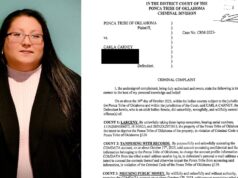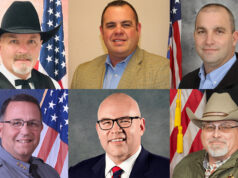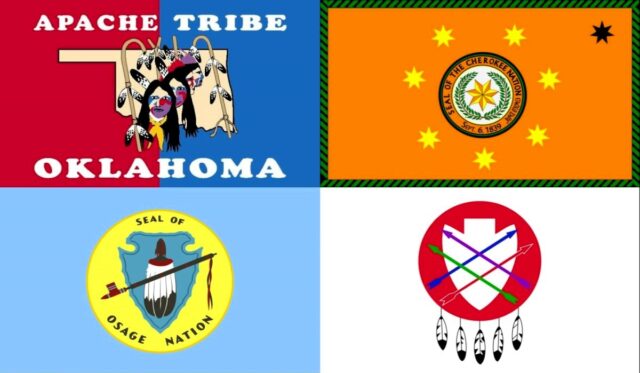

As Oklahomans prepare for the April 3-5 filing deadline for state elections, some tribal nations across the state have been conducting or preparing for elections of their own. In the Cherokee Nation, tribal citizens will face a rare off-year special election referendum this summer on whether to hold a constitutional convention for amending or replacing the tribe’s constitution.
Another tribal government also has constitutional reform on the ballot this summer. West of the Cherokee Nation, Osage Nation voters will decide on a constitutional amendment about executive appointments alongside their regularly scheduled Osage Congress elections.
While the Cherokee and Osage nations prepare for their June elections, the Apache Tribe of Oklahoma and Peoria Tribe of Oklahoma wrapped up their 2024 elections in March.
Cherokee Nation faces referendum on constitutional convention
The Council of the Cherokee Nation passed a resolution and legislation paving the way for a June 15 special election to decide whether to call a constitutional convention.
The Cherokee Nation election calendar provides for a quick turnaround. New voter registration opened March 12, the day after approval of the legislation, and registration forms must be submitted by March 28, just over two weeks later. Absentee ballots must be requested by April 5 and are set to be mailed out April 22 and 23. Returned ballots must be received by the Tahlequah post office by noon on Saturday, June 15, the day of the election. Early walk-in voting will be held June 8 and June 11-13.
The timeline gives at-large Cherokee Nation voters, who constituted 33,827 of 78,419 registered voters in May 2023, a 25-day window to request their absentee ballots.
Constitutional conventions are held to write or amend a government’s constitution, the document that outlines the basis and foundation of a government. In the United States, constitutional conventions are fairly rare. The country has the second-oldest constitution in the world, and there have not been serious movements to invoke the convention clause. State governments also rarely rewrite their constitutions, the most notable instances being the post-Civil War constitutions that southern states were required to rewrite for readmission to the Union.
The Cherokee Nation is on its fourth constitution, which was written in 1999. The first Cherokee Constitution was written in 1827, followed by the second constitution of 1839 written in Indian Territory after the forced removal of Cherokee people on the Trail of Tears. William Wayne Keeler led the drafting of the 1975 constitution, and a constitutional convention was held for the drafting of the 1999 constitution. (Current Principal Chief Chuck Hoskin Jr. and at-large Councilor Julia Coates were delegates at the 1999 convention).
According to a press release from the tribe, “the Cherokee Nation Constitution states that a question of whether to call a constitution convention must be submitted to the citizens of the Cherokee Nation at least once every 20 years during a general or special election.”
Cherokee Nation Attorney General Chad Harsha told the Cherokee Phoenix a constitutional convention is one of three ways the Cherokee Nation Constitution can be amended.
“It can be changed by a two-thirds vote of the council submitted to a vote of the people. It can be changed by the petition process, or it can be changed through a constitution convention, the question to be asked at least once every 20 years,” Harsha said.
If the pro-convention vote wins the June 15 special election, it would trigger the creation of a Cherokee Nation Constitution Convention Commission within 60 days of the certification of the election by the Election Commission. The CNCCC would consist of seven members who would oversee the constitutional convention process. The principal chief and deputy chief would agree on the appointment of two commissioners, while the Cherokee Nation Supreme Court and the council would each appoint two commissioners by majority vote. The six commissioners would then appoint the seventh member.
Also on Mrach 11, the council also ratified the new tobacco tax compact with Oklahoma. Harsha spoke in favor of the compact before its passage through committee last week.
Osage Nation to elect congressional members, decide constitutional amendment
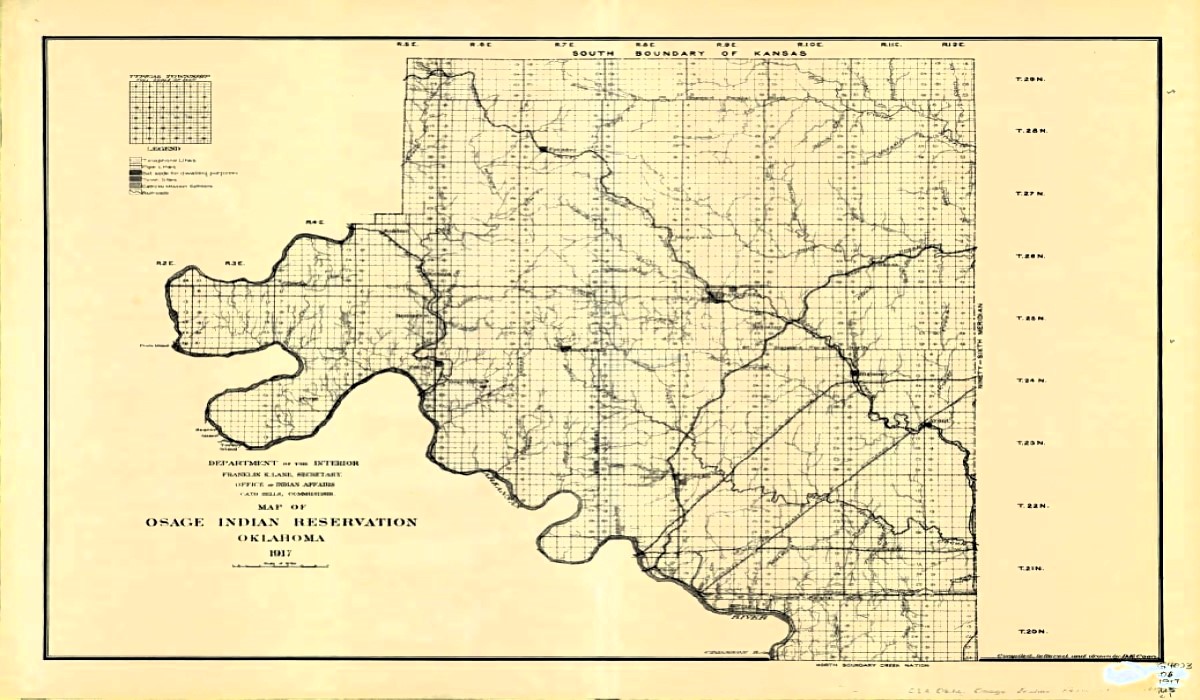
Voters in the Osage Nation will have more than a dozen candidates to choose from on their June 3 ballots, and each voter is allotted six selections. All candidates run on one ballot in the Osage Congress election, with the top six vote getters winning a seat.
The election calendar for the Osage Nation gives voters until April 19 to request absentee ballots for the June 3 election. Early voting is set to take place May 31 and June 1. Osage voters will elect six of the 12 Osage congressional members during the election.
The following 16 candidates filed to run for the 2024 Osage Congress election:
- Joe Tillman, incumbent Osage congressman;
- John Maker, incumbent Osage congressman;
- Jodie Revard, incumbent Osage congresswoman;
- Traci Phillips, former member of the Osage Nation Gaming Enterprise Board;
- Billy Keene, incumbent Osage congressman;
- Pam Shaw, incumbent Osage congresswoman;
- William Kemble, former Osage Nation treasurer;
- Christa Fulkerson, director of grant management and compliance for the Osage Nation;
- Maria Whitehorn, former Osage congresswoman;
- Angela Pratt, former Osage congresswoman;
- Tina Allen, candidate for Osage Congress in 2018 and administrator for the Committee for a Responsible Osage Nation Budget Facebook group;
- Liberty Metcalf, former Bureau of Indian Affairs legislative coordinator and realty specialist;
- Patrick Cullen-Carroll, a weightlifting coach;
- Alexis Martin, an Osage Nation counselor;
- Jacque Jones, former Osage Nation executive branch and business employee; and
- Brooklin Sweezy, an assistant chef at College Fresh.
The Osage Nation Election Board officially certified the candidate list March 18 after each candidate was checked to make sure they met qualifications of the office. The qualifications are being 25 or older on the day of the election, being an enrolled member of the Osage Nation and not having a felony conviction. Osage voters have until March 21 to contest a candidate appearing on the ballot. Congresswoman Paula Stabler is not seeking reelection.
Osage voters will also decide on an amendment to the Osage Nation Constitution that would give the Osage Congress power to confirm or reject a principal chief’s executive appointment during a special session. Currently, the principal chief of the Osage Nation can appoint executive officials when the Osage Congress is out of session, and those appointments expire at the end of the next regular congressional session.
The Osage Constitution does not allow for the Osage Congress to reject an executive official appointed outside of the regular session. The amendment would give the Congress a check on the executive’s appointment power during congressional recesses, which currently is only checked by a provision barring the appointment of someone rejected by the congress to the same office they were rejected from during a congressional recess.
Follow @NonDocMedia on:
Facebook | X | Text or Email
Peoria Tribe elects three new tribal officers
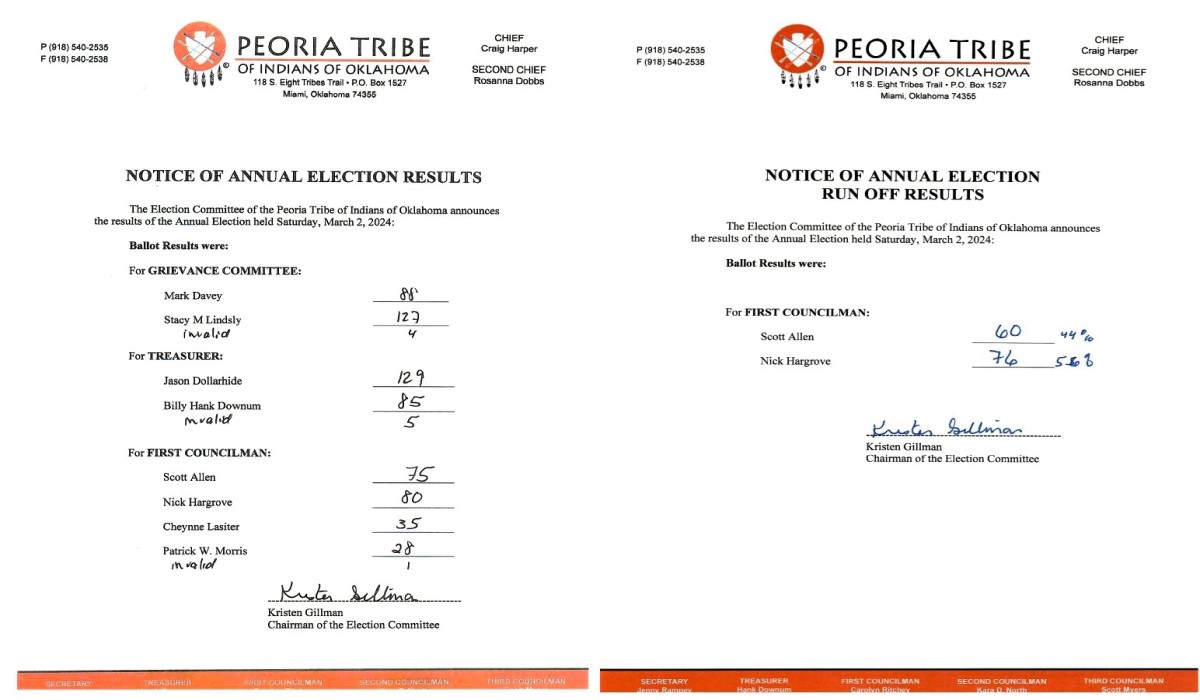
In what would become a bad day for incumbents, the Peoria Tribe of Oklahoma held elections for two members of its Business Committee and one member of its Grievance Committee on March 2. Under the Peoria Tribe’s constitution, most of the governance is handled by the seven-member Business Committee, while the five-member Grievance Committee functions as a quasi-judicial branch in charge of interpreting the constitution, settling disputes and overseeing the enforcement of the Indian Civil Rights Act. (The Court of Indian Offenses is the tribe’s official court.)
The Peoria Tribe is headquartered in Miami and had its historic reservation affirmed in 2023. In the race for treasurer of the Peoria Tribe, Hank Downum lost (40.7 percent) to Jason Dollarhide (59.3 percent).
In the first councilperson race, Carolyn Ritchey did not run for another term, leaving an open seat contested by four candidates. Scott Allen and Nick Hargrove beat out Cheynne Lasiter and Patrick Morris for spots in a runoff election, with Hargrove ultimately winning the runoff by receiving 56 percent of the vote. Allen won 44 percent of the votes.
Grievance Committee member Mark Davey also lost his seat in a one-on-one race against Stacy Lindsly, who garnered 59.1 percent of the vote. The three newly elected candidates will serve four-year terms.
Apache voters keep 4 on business committee, elect 1 new member
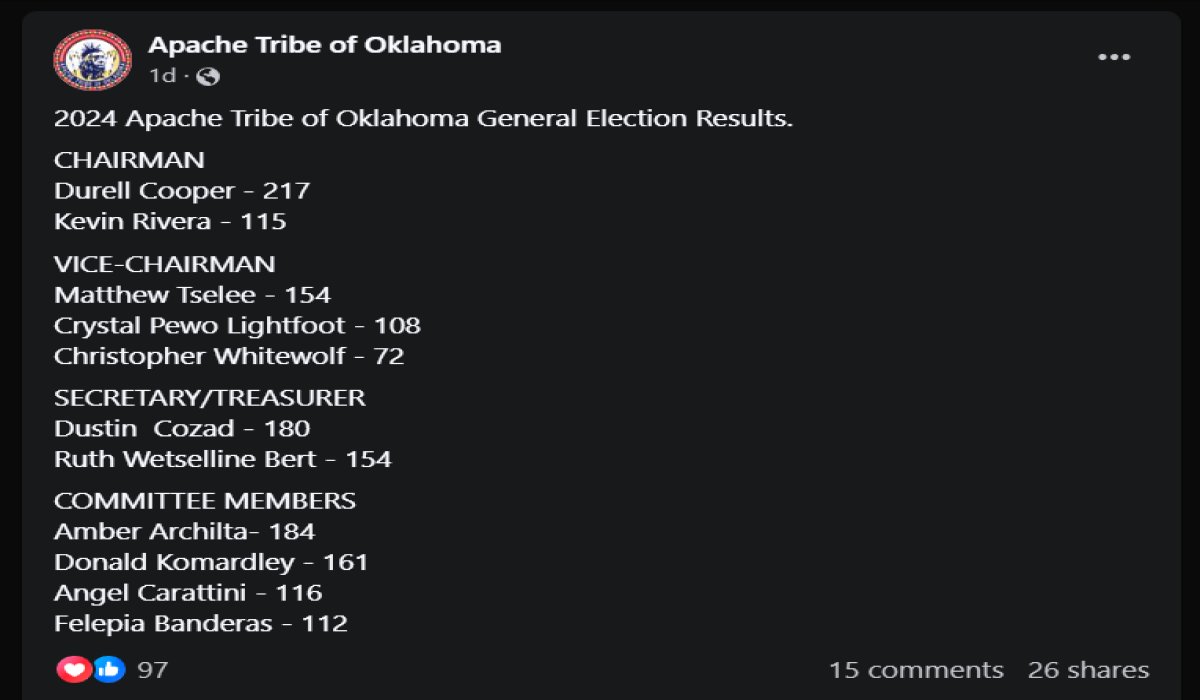
Headquartered in Anadarko, the Apache Tribe of Oklahoma held elections for its five-member Business Committee on March 16, reelecting three incumbents and electing one new member, Amber Archilta, to the committee. The Apache Tribe’s constitution also creates a Business Committee, but with two-year terms, meaning all five members of the Business Committee are up for reelection during the tribe’s biannual elections.
Treasurer Ruth Bert lost reelection to Dustin Cozad, who received 53.9 percent of the vote in the two-person race.
Chairman Durell Cooper coasted to reelection against his opponent, Kevin Rivera, winning 65.4 percent of the vote. In the vice chairman’s race, incumbent Matthew Tselee held on with a plurality of the vote, 46.1 percent, over challengers Crystal Lightfoot (32.3 percent) and Christopher Whitewolf (21.6 percent).
Four candidates — Amber Achilta, Donald Komardley, Angel Carattini and Felepia Banderas — competed for two seats on the tribe’s business committee. Incumbent Donald Komardley placed second with 28.1 percent of the vote and retained his committee seat, while Amber Achilta placed first with 32.1 percent of the vote. Carattini was 46 votes short of winning a seat with 20.2 percent of the vote while Banderas trailed closely behind with 19.5 percent support.









